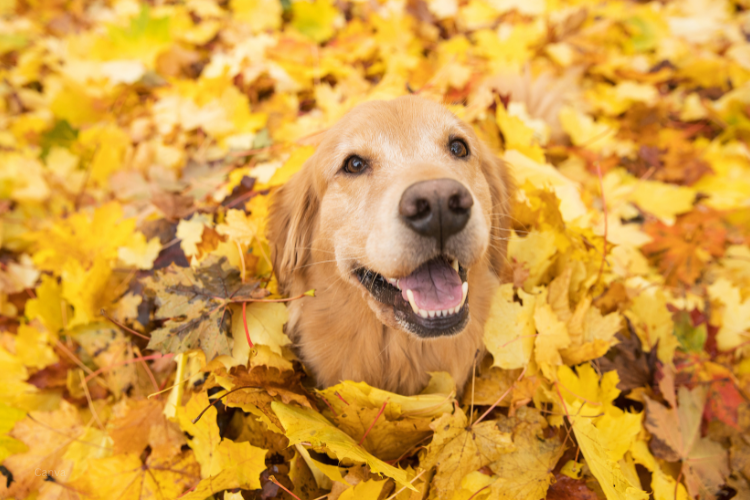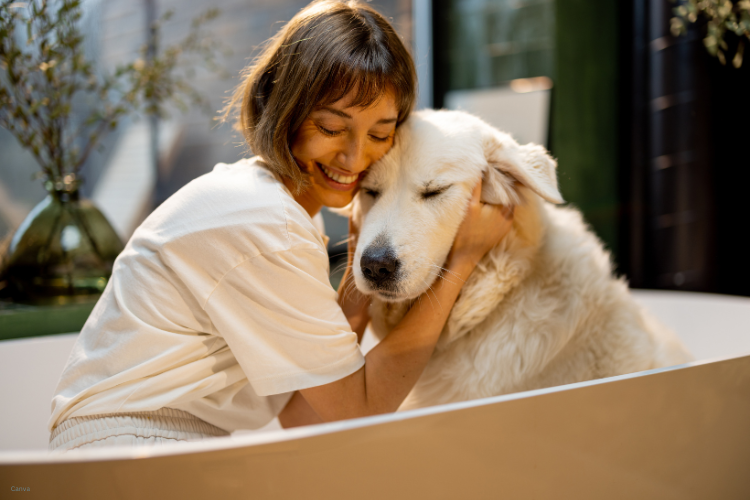Both look like angelic retriever fluff, but only one might survive your schedule and vibe.

Everyone acts like choosing between a Golden and a Lab is a coin flip, but it’s actually more like choosing a roommate who either throws brunch parties or tears up the carpet out of boredom. On paper, they seem identical—sweet, loyal, gorgeous—but personality-wise, they’re two very different flavors of chaos. If you’re about to pick one, it helps to know what you’re really signing up for. They don’t just fit into your life. They reshape it.
1. Goldens are more emotionally needy and it gets clingy fast.

According to the American Kennel Club, Golden Retrievers were bred not just to retrieve but to stick close and tune into human moods with laser focus. That sounds lovely until you realize it means they’ll follow you from room to room, pout if you close the bathroom door, and act heartbroken if you leave for work. Labs can be affectionate too, but Goldens tend to need more emotional validation throughout the day. If you like your space or work long hours, this breed can spiral into full drama mode without attention.
2. Labs chew like it’s an unpaid full-time job.

As discovered by the University of Lincoln’s Animal Behaviour Clinic, Labradors have higher tendencies toward oral fixation, especially in their puppy and adolescent stages. That adorable retriever mouth? It will find your shoes, your remotes, your phone charger, and gnaw them with the focus of a monk. They often outgrow the worst of it, but early on, it’s relentless. Goldens also chew, but Labs do it harder and longer. If you don’t redirect it with toys, training, and supervision, your belongings become their chew buffet.
3. Goldens shed year-round like they’re on a mission to coat your life.

Reported by PetMD, Golden Retrievers have a longer, denser double coat that sheds heavily no matter the season. Seasonal blowouts still happen, but even in the off months, that soft golden fluff will find its way into your cereal bowl, car vents, and every black shirt you own. Labradors shed too, but their short coat makes it feel slightly more manageable. With a Golden, it’s a forever-fur situation. You don’t just adopt a dog—you adopt a second wardrobe of floating blonde hair.
4. Labs have more chaotic energy and they don’t fake it.

Labradors often come at the day like it owes them something. They’re enthusiastic, bold, and zero percent subtle about how badly they want to run, sniff, jump, eat, and explore. Goldens bring energy too, but it’s usually more balanced with a go-with-the-flow sweetness. Labs are more likely to drag you down the trail, knock over toddlers by accident, or launch themselves into a lake because they saw a duck. They’re not trying to be intense. They just run hotter by nature.
5. Goldens tend to be more sensitive and take criticism personally.

Correct a Golden too harshly, and they might sulk like you canceled their birthday. These dogs are tuned into tone and body language, and they don’t shake off discipline easily. That’s not a bad thing for people who prefer calm training. But if you have a louder household or more direct style, a Golden might retreat emotionally while a Lab shrugs it off. Labradors have thicker skin and shorter memories. A firm “no” barely dents their vibe. Goldens need gentler handling or they’ll start second-guessing everything.
6. Labs can get destructive if you don’t exhaust them daily.

This isn’t just about energy—it’s about consequences. A bored Lab will find something to do, and you won’t like what they pick. Couch destruction, backyard craters, ripped blinds—they’re all on the menu if you don’t give them enough stimulation. Goldens have high energy too, but they usually channel it into following you or waiting for cues. Labs freelance. They assume if you’re not leading the day, they will. And they don’t ask permission first.
7. Goldens stay puppy-like emotionally way longer.

While Labs can be wild in the beginning, many mature into calmer adults around age two or three. Goldens, on the other hand, often retain their innocent, over-eager sweetness well into middle age. That means they’ll still roll on their back mid-walk, lose focus during commands, and ask for belly rubs like they just discovered touch. It’s charming, but it can also be frustrating if you were hoping for a more focused partner as they age. They’re forever golden toddlers in a 65-pound body.
8. Labs tolerate chaos better and bounce back quicker.

Labradors are usually better at handling unpredictable environments. Loud kids, busy parks, weird noises—none of it phases them much. Goldens can be more cautious or reactive in overstimulating situations, especially if they weren’t socialized early. That doesn’t mean Labs don’t need training. It just means they tend to adapt faster and recover quicker when things get weird. If your life is a moving circus or your home is a revolving door of visitors, the Lab is probably better built for that noise.
9. Goldens are more likely to form tight bonds with just one or two people.

While they love everyone on the surface, Goldens often latch hard to a specific human and subtly orbit them like a sun. Labradors spread the love more generously. They’ll take treats from your friends, curl up with your cousin, and treat strangers like old roommates. Goldens can be more emotionally intense. You might not notice it right away, but the longer you live with one, the more it becomes obvious who they chose. And if you’re not their person, you might feel slightly ghosted.
10. Labs tend to have a longer working life in high-demand roles.

Search and rescue, guide work, service tasks—Labradors dominate these fields for a reason. They’re incredibly trainable but also rugged, adaptable, and less emotionally fragile in tough moments. Goldens do these jobs too, but they’re more prone to stress in chaotic situations and sometimes age out of the field earlier due to joint issues or temperament sensitivity. If you’re looking for a dog that thrives in nonstop environments and doesn’t overthink the pressure, the Lab’s your marathoner. The Golden is more of a loyal sidekick with an emotional depth you can’t rush.
